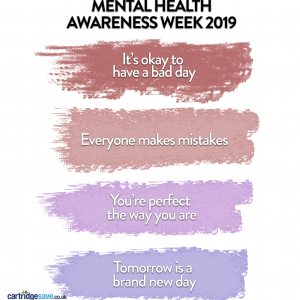
10 tips you need to become less stressed at work
If you’re feeling under pressure, what stress management strategies work best? Should you business be helping staff with stress management in the workplace? And where should you turn and where should you go if you’re suffering from stress?
Whether you’re looking to implement stress management in a business or simply need some tips for day-to-day stress relief for yourself, you’ve come to the right place. We’ve compiled a guide consisting of 10 stress management techniques to help you alleviate day-to-day stress in the workplace:
Deep Breathing
The oldest trick in the book. When you worry your body goes into fight or flight mode and can start pumping out high levels of adrenaline, causing you to feel panicky and stressed. Try taking deep, slow breaths to calm your body. This should send a message to your brain that everything is okay and there’s no need to panic which in turn will help normalise your hormone levels.
Gym before work
Work out your frustrations before the day has even begun. Leaving your stress in the gym will definitely help you to feel better throughout the day. An early morning workout is proven to help boost productivity levels throughout the day and will leave you feeling positive about yourself for the rest of the day because you’re already off to a flying start.
Use the stairs
If the gym isn’t your thing, why not commit yourself to using the stairs rather than taking the lift? Gentle exercise throughout the day will release a steady flow of endorphins, helping you to feel great during the day and sleep better at night.
Hot desk
Switch up your desk once in a while. A change of view can give you new perspective and help you to reset when your brain feels fried. This could be the boost you need if you’re stuck in a rut and the work is starting to pile on. Go for a walk in your lunch break If you’re feeling trapped and sick of staring at the same four walls, use your lunch break to get out of the office. Clear your head by taking a quick walk to the local park, shop or even just around the block. You can never have too much fresh air and it’s good to put some distance between you and your workload for 20 minutes over lunch.
Listen to music
If your office permits it, having the radio on in the corner is a very simple way to keep spirits and energy levels up. Upbeat tunes are great for stress relief and tapping your foot or bobbing your head will boost blood circulation to the brain. Just ensure the music isn’t so loud that it becomes a distraction.
Invest in a stress ball
Squeezing a stress ball is an easy way to physically take out your frustrations and they can be purchased very cheaply. The act of repeatedly squeezing a stress ball is proven to help relieve tension and work related stress whilst boosting blood circulation.
Get up and make a cup of tea
When you’re working to a tight deadline it can seem counterintuitive to walk away from your desk and take five, but the benefits are proven. Studies show that the average adult struggles to concentrate for more than 20 minutes at a time. Regular five minute breaks while you make a cup of tea are proven to aid brain reboot so you can come back to your desk with a renewed focus. Besides, who doesn’t feel instantly better after a cup of tea?
Mindfulness
There is a lot of discussion as to whether or not the practice of mindfulness is actually beneficial but studies show that just 10 minutes per day helps to relieve anxiety, stress and exhaustion whilst aiding memory and concentration. Taking the time to stop and find some calm amidst a hectic day is the first step. Try sitting somewhere quiet (you don’t have to sit cross-legged on the floor) and focus on your breathing and how it feels as each breath enters and leaves your body. Take a moment to become aware of your surroundings and acknowledge how you’re feeling. After 10 minutes of calm, return to your desk and you should feel relaxed and more focused.
Talk it through
If physical exercises don’t seem to be helping you should consider talking through the causes of your stress with someone. Telling a colleague, friend or spouse about the causes ought to help with emotional stress and informing your colleague will enable them to help you prioritise your work or share the load to relieve the pressure a little. It’s usually best not to suffer in silence and if you feel your work related stress is severe do consult your doctor for further advice.
The content on our site is not intended to amount to advice on which you should rely. You must obtain professional or specialist advice before taking, or refraining from, any action on the basis of any Information or content on our site, whether posted by us or by any of our users.
Download our printable guide below and share these simple stress management techniques with the office.
Download ← Back

